Has the war affected the peaceful, relatively safe Transcarpathia area and the people who make wines there?
“In my opinion, the war affects everyone in Ukraine,” Krisztián replies. “Our villages are empty. Lots of people have moved out, and as the war drags on, the chances that they will come back are getting smaller.”
All that, combined with inflation, is a huge problem that requires a new strategy. For Krisztián and his family the solution lies within the modernisation of the vineyards and the winery. He also believes that the new strategy is vital for the whole region, not only for his winery. Zakarpattia is a powerful historic wineland with special terroirs and high-quality wines have been produced here for centuries. For Krisztian (below), the war is hardly an excuse to accept lower standards.
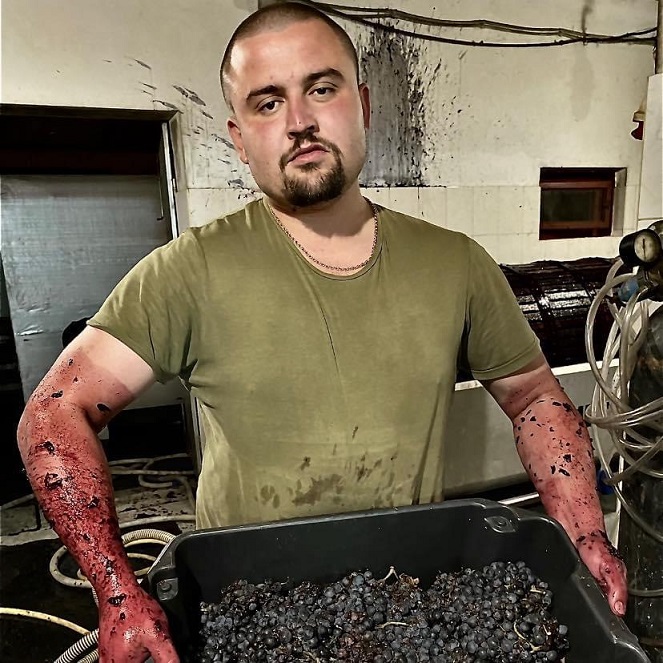
The Sass family winemaking traditions date from the 18th century, coming from both lines of the family. In the 1920s-1930s, the Sasses owned 10ha of vineyards and several wine cellars at the foot of Berehiv and Kidyosh mountains. During the forced collectivisation in Ukraine (1928-1933), these cellars, as well as the larger part of the vineyards, were confiscated by the Soviets. Many winemaking families, including the Sass family, were doing their best to preserve the traditional grape varieties grown in that area, as well as old winemaking traditions.
After the fall of the Soviet empire and Ukraine’s independence, the Sass family renewed the business. Their vineyards are now located in Hazanéző. This unique terroir has a volcanic base and a clay upper layer. Some of the vines growing here are more than 60 years old. The family is focusing on growing indigenous varieties of the Carpathian Basin. The main grapes here are Bakator, Királyleányka (Royal Leanca), some Hungarian varieties such as Hárslevelű, Cserszegi Fűszeres and Szerémi zöld, as well as Olaszrizling (Welschriesling), Traminer, Muscat, Chasselas, Riesling, Solaris, Cabernet Sauvignon and Saperavi. They practise organic viticulture and low-intervention winemaking.
“I’m 28 years old and I made my first wine in 2011,” Krisztian tells me. “As time passed by, I realised the importance of getting to know the grapes. I studied winemaking technologies in Budapest, and as I wanted to know more about viticulture, I also got a university degree as the engineer of viticulture and oenology. All this background combined with some practical experience, lots of wine travels and, finally, a master’s degree in sustainable farming and plant protection, formed my philosophy and approach.
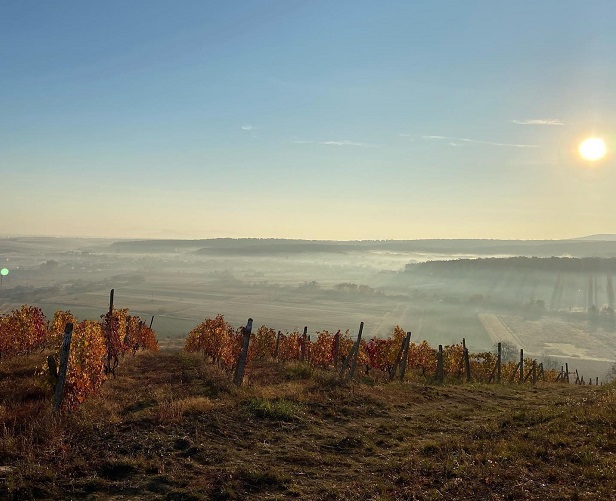
“The first thing I did after graduation was to introduce integrated plant protection in our vineyards. I set traps to protect the vines from insects, used weeds and herbs to protect the vines from diseases, and intervened only when necessary, for instance to avoid nutrient deficiency. In total, we have 2.2ha of new organic vineyards. Our old plantation can’t be considered completely organic, because the vineyards of several farmers nearby are not. However, even in those vineyards we minimise spraying and rather strengthen the immune system of the plants.”
Another important aspect of Krisztián’s approach is making clean-tasting, well-balanced wines with minimal intervention. “My white winemaking technique is very simple: spontaneous fermentation in barrels or tanks, ageing on the lees for a few months, clarification with bentonite, filter or not, depending on the amount of natural residual sugar. Reds are unfiltered and unfined, and I usually don’t add sulphur for eight months at least because of malolactic fermentation,” Krisztian comments.
The young winemaker believes that naturally sweet wine is the king of wines. Tokaji Aszú, Tokaji Szamorodni, the French Sauternes, the German Trockenbeerenauslese – all these wines demonstrate perfect balance, value and maturing potential. There are very few regions which are good for making these wines, and Zakarpattia is one of them, he believes.
One of Krisztián’s biggest ambitions is to make a great Aszú-like wine – a naturally sweet wine following the traditional Tokaj technology – using Királyleányka, Hárslevelű, and Olaszrizling.
He is inspired by an article he came across mentioning a bottle of Beregszász Aszú from 1901, stored in the wine museum of Budafok in Budapest, and destroyed by the German bombing in WWII. Further research confirmed that the 1901 wine, as well as many other excellent Aszú wines, were made in Beregszász (currently, the Berehove region in Zakarpattia).
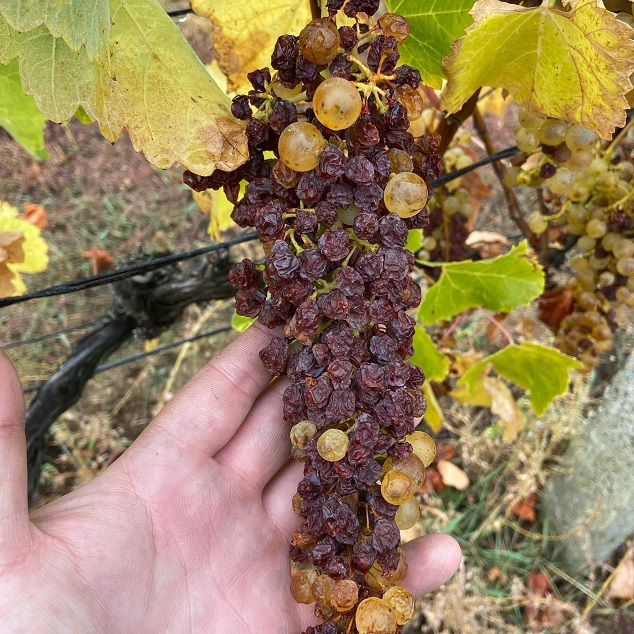
“Due to the Soviet regime, several generations grew up in our region without even knowing the difference between noble rot and disease. The old winemaking traditions were almost eliminated here,” Krisztian says, a little frustrated. It took him a while to study the stages of noble rot, the right varieties and the right vineyards to grow them, as well as the complicated (an expensive) technological process used to produce this special wine.
The dream wine was finally ready in 2023. “I am still thinking of a name for this wine. Of course, it can’t be called Aszú, which is protected by the PDO Tokaj. It’s not easy, just like naming a baby,” he reflects.
When quizzed about the winery’s signature bottles, Krisztián highlighted a white and a red. The white one is Bakator, made from a variety that’s indigenous to this area. “My grandfather loves old varieties and, due to his effort, many of them are still grown in Kígyós,” the young winemaker points out. Bakator is highly resistant to diseases and various weather conditions, and, considering climate change, it has become very important for the region, producing wines with low alcohol content and a good acid structure. Sass K Winery is also planning to use it for the production of classic-method sparkling wines.
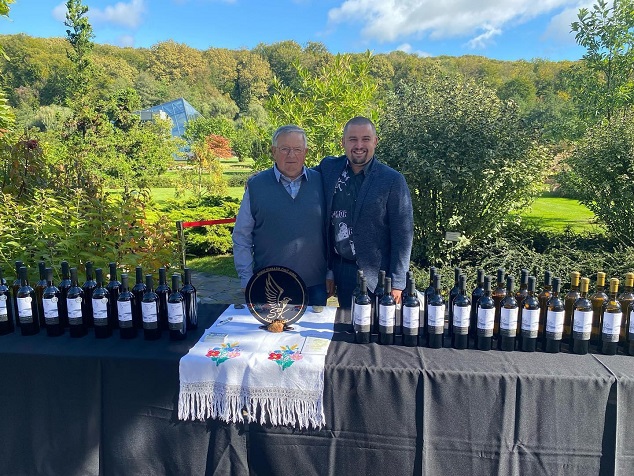
The red one is Karlot. It’s a field blend of Cabernet Sauvignon, Cabernet Franc and Merlot. “This wine was named after my grandfather, the name comes from the combination of Cabernet and Merlot, starting with a ‘K’ to pay tribute to my grandfather, Károly (Karlo). It’s our most successful wine, it usually scores very high in wine competitions. Many people wonder how Cabernet and Merlot can actually be of such high quality in Zakarpattia. The answer is very simple: amazing terroir and 60-year-old vines,” Krisztián sums up, proudly.
Sass K Winery is one of 17 producers on the Wines of Ukraine stand at ProWein 2024 (March 10-12, Dusseldorf, Germany). As well as the big winemaking companies and major players such as SHABO, Chateau Chizay, Koblevo and Bolgrad, the Ukrainian national stand (13H52) will present smaller craft wineries from various parts of the country. These include Biologist Winery (Kyiv region), Sass K Winery (Zakarpattia) and Beykush Winery (Mykolaiv).
Wines of Ukraine will also present 11 producers at the London Wine Fair, May 20-22, Olympia, London, W14 8UX, England. Stand: D26.
Victoria Makarova is a Ukrainian wine expert and journalist, and representative for Wines of Ukraine. Since April 2022, Victoria has been living in Baden-Württemberg, Germany.


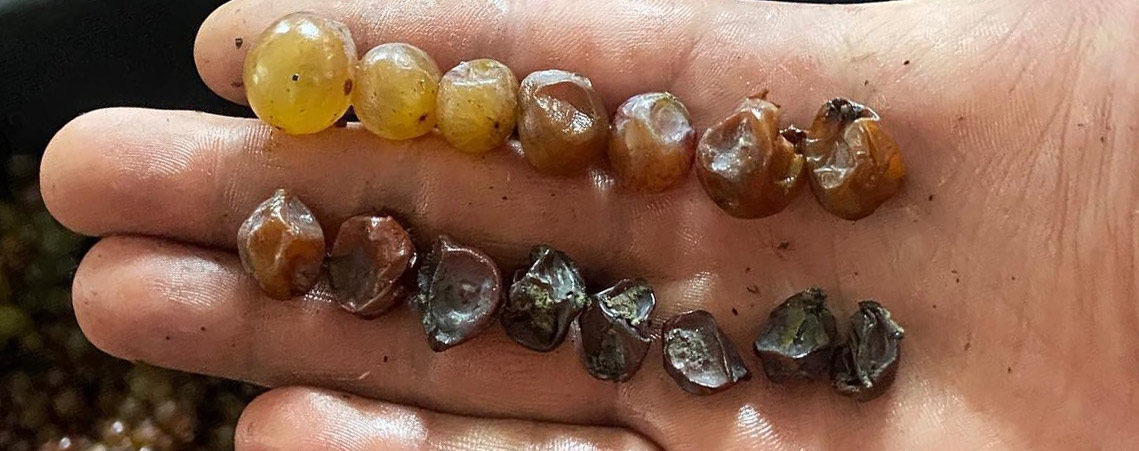








.png)









